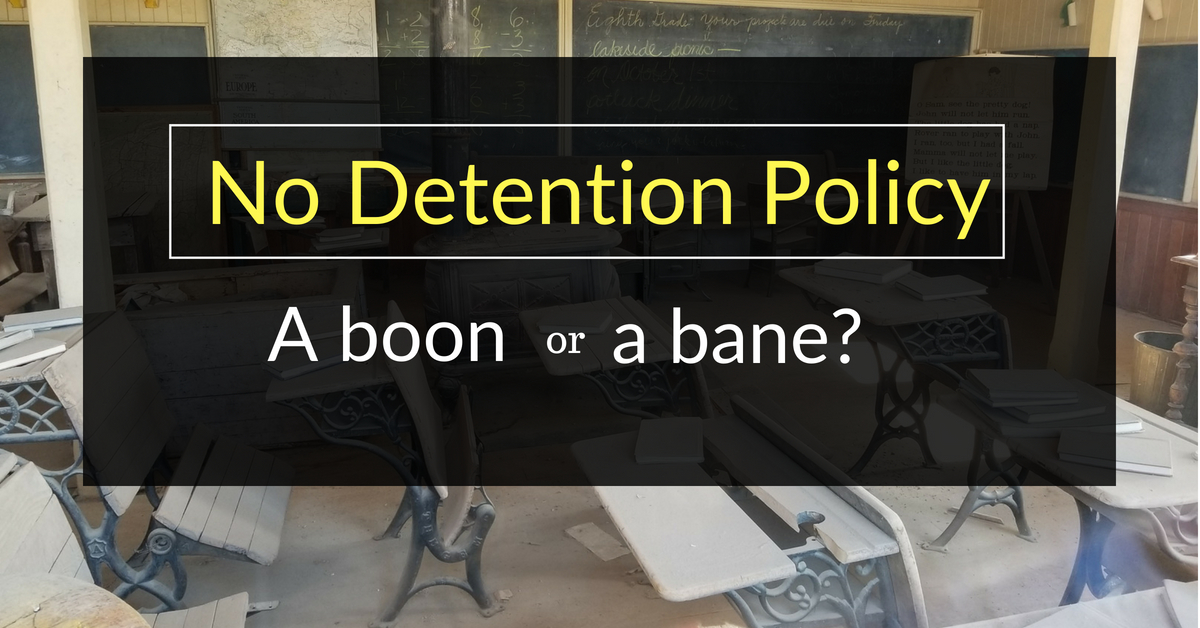The scrapping of the No-Detention Policy has been magnanimously celebrated by the teaching community. But the debate doesn’t seem to settle this soon. Experts believe that the discarding of the law is an act of the government to waive off their responsibility to educate children up to class 8th. While many believe that since the initiation of the No-Detention Policy, adequate focus has not been given to provide quality education!
The policy stated under the Right to Education Act, 2010 by the MHRD, had been vehemently opposed by the educators as the performance in the higher classes is at a constant decline. Many have been indifferent to the fact that despite rocketing numbers of enrollment the drop-out rate in the higher standards has been dismal.
According to the ASER’s report- Beyond The Basic, 47.8% of students of class V can read class II level text. This has declined from 2016’s performance of 48.1%. The proportion of all Class VIII students in rural India who can divide a three-digit number by a single-digit one has dipped to 43.2% in 2016 from 44.2% in 2014. The pattern is disturbing as the consequences of this can be disastrous. The decision was thus condemned by many states of the country.
The prime goal is not only to make education accessible but to ensure that each child who enrolls in a school gets a proper education.
When our team talked to the teachers about their views on the No Detention Policy they shared that when children know that needless of the scores they would get promoted, it brings a careless attitude in them. An attitude that not all the teachers would want to change. This has brought a lot of hindrances to their education. Many schools have more than 40 kids enrolled in each class, it is impossible for a teacher to individually counsel each child and pull them on track. With limited resources and time, the teacher becomes the sole-hope of the school and the children. This doesn’t take more time for the responsibility to become burdensome for the teacher!
Another issue faced by the teachers as told to us by Ms. Uma, HeadMistress, Swavalamban Education Centre, Kapa Sera, was the lack of interest in the parents towards their child’s education. This eventually affected the child’s interest in coming to the school. With the promotion policy, this further led to a situation where the teachers taught a group of mere spectators who were unaware and indifferent to the lessons in the classrooms.
To draw to a close, what we need is children to develop the right values and knowledge to become an asset for the nation and just not a herd of clueless youth. We might not completely be ready for the No-detention policy today, but a few years down the line when the bleak conditions of the education system are removed, opting for a no-detention might be the best way to build an army of well-educated future leaders. Educating means the social, emotional, physical, and mental development of the child. It means inculcating in children the right values more than making them grade A holders.
For this, we need to first introduce ways that empower the classrooms and our teachers. Child’s understanding is mostly the result of the teacher’s explanation.
- Cost-effective technology solutions
- Remedial learning programs
- TLMs for better facilitation
- Proper follow-ups with the teachers
- Actionable data for instant feedback
- Detailed progress reports for a profound analysis
This can only be possible when the public and private sector organizations work in tandem and put their best foot forward to provide effective solutions to the schools.
Let’s be the country that not only advocates Education for all but a country that believes in giving quality education to all!
